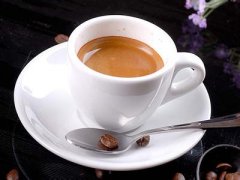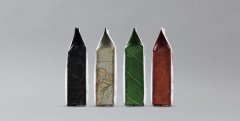WBC (World Barista Championship)
English article: in 2000, a group of people who devoted themselves to coffee showed the first comparison of WBC (World Coffee Cup) in Montana. Their opinions have created a competition platform for the most popular coffee shops from all over the world. Twelve contestants from different countries took part in the final, and Norway's ROBERT THORESEN won the championship.


This time the winner of 17 coffee bars representing their country's electors once again fell into the hands of the Northern Hemisphere elector-MARTIN HILDEBRANDTD from Denmark.

On the third WBC, we went back to Africa-a trip to Malaysia in Denver. Participants from all over the world participated in this championship. After a fierce competition among 24 electors, the winner is still the Scandinavian elector, FRITZ STORM, who is the most powerful at home.


American Bosnian in 2003. At that time, WBC had achieved unprecedented success, and the event was broadcast to more than tens of millions of Americans in the morning in the United States (not including television stations in other regions of the world), and for the first time, the champion was produced outside the Scandinavians-- the PAUL BASSETT from Australia took the crown from the 28-member elector.

On the fifth trip of WBC, I came to Tiriaster, the home of Italian coffee and high-quality ESPRESSO. The record-breaking event was attended by 34 electors, and for the first time, the referee had to compete for their place, just like the electors. Norwegian elector TIM WENDELBOE proudly won the Cup in front of hundreds of people.


In 2005, WBC was the birthplace of ESPRESSO COFFEE in Seattle-the birthplace of STARBUCKS. World-class coffee electors from 35 countries presented a feast of perfection and professional ESPRESSO coffee. The king is also a Scandinavian person. The third election of the elector of Dan.
Crown-OVERDALL PAULSON conquered the capital of the coffee empire of the United States.


The city of Bourne in the Swiss city of Bourne launched the seventh WBC decision. 39 countries have selected the most outstanding WBC champions who have reached an unprecedented level. When KLAUS THOMSEN was the last candidate in the 2006 WBC decision, there was a lot of excitement about the number of record-breaking players. His fascinating performance stems from his near-religious belief that "tasty coffee can exist in 2006", and the philosophy behind his exposition of coffee-coffee is like a friendship, where all the "performers" and everyone who works for it (melody) have to work together for the common goal of "offering a perfect ESPRESSO". His signature coffee is called "cross coffee"-a triple coffee ingredient made of ESPRESSO,PANNA COTTA and coffee foam. KLAUS is the fourth Danish champion to be born in the past seven years of WBC.
Original English text:
In 2000, in Monte Carlo, a group of like minded individuals got together and presented the first annual World Barista Championship. Their vision was to create a competition that showcased the best baristas from around the globe. 12 people competed from various nations and the competition was won by Robert Thoresen of Norway.
2001 saw the competition move to the USA, to the hot and steamy beach city of Miami, Florida. This time around 17 baristas came to represent their home countries and once again the winner was plucked from the north-Denmark's Martin Hildebrandt took home the crown.
For the third annual World barista Championship we were back in Europe, as Oslo, Norway and the SCAE hosted the competition for 2002. Once again baristas from across the globe came together to battle for the title. 24 baristas worked tirelessly but the winner was once again the Scandinavian nation of Denmark. Fritz Storm blasted home to win.
Boston, 2003. The WBC had now gained such momentum that the competition was broadcast on national morning TV to over 20 million Americans (not to mention the rest of the world!) From a tough pool of 28 baristas the championship was awarded for the first time out side of Scandinavia. Paul Bassett from Australia overwhelmingly took top honours with a convincing and solid performance
In its fifth year the WBC travelled to Trieste, Italy, the home of Italian coffee and quality espresso. A record breaking 34 representatives battled to win the title which for the first time was also accompanied by a competition of a different kind. Judges as well as baristas had to work for a position in the competition. In front of an audience of hundreds Tim Wendelboe of Norway proudly earned the now much sought after title of World Barista Champion.
In 2005 Seattle, the USA home of espresso coffee was the WBC host. Once again the worlds best Baristas and coffee enthusiasts gathered to experience the ultimate professional espresso experience. 35 countries competed to find the next champion. Scandinavia was successful again, for the third time a Danish competitor took the crown. Troels Overdall Poulsen was triumphant in the USA coffee capital
The beautiful city of Berne, Switzerland, was the host of the 7th annual World Barista Championship. 39 nations were battling for the prestigious world title and the level of the competitors has never been higher. A record-breaking amount of spectators were cheering and nearly lifting the sealing when Klaus Thomsen from Denmark was awarded the 2006 world barista champion title. His spectacular performance was based on what he believed "Speciality coffee can be in the year 2006" and the philosophy behind the presentation was that coffee is like a Symphony, where all "players", or workers in the coffee chain, has to work together and towards the same goal in order to provide a perfect cup of espresso. His signature drink called "Symphony" was a three-layer drink consisting of coffee-panna cotta, espresso and coffee foam. Klaus is the 4th Danish world barista champion out of a total of 7.
Important Notice :
前街咖啡 FrontStreet Coffee has moved to new addredd:
FrontStreet Coffee Address: 315,Donghua East Road,GuangZhou
Tel:020 38364473
- Prev

How to determine the freshness of coffee beans? There are three steps: smell, look and peel.
Freshness is the life of coffee, the best drinking period of roasted coffee beans is 6 days, and the best drinking period of ground powder is only 3 days. There are three steps: smell, see, peel: smell: coffee beans close to the nose, deeply smell, is not clear to smell the aroma of coffee beans, if yes, coffee beans are fresh enough. Conversely, if
- Next

How to choose the packaging of coffee
When the baking is finished, the coffee will be ready to use. It is important to pack it as soon as possible to avoid the loss of aroma and keep it fresh. After contact with the air, the water and oxygen in the air accelerate the oxidation process, making the quality of coffee worse. Factors affecting packaging Packaging is an important and careful process, which can protect coffee from the following factors: 1. Environment: coffee will change when in contact with air.
Related
- Beginners will see the "Coffee pull flower" guide!
- What is the difference between ice blog purified milk and ordinary milk coffee?
- Why is the Philippines the largest producer of crops in Liberia?
- For coffee extraction, should the fine powder be retained?
- How does extracted espresso fill pressed powder? How much strength does it take to press the powder?
- How to make jasmine cold extract coffee? Is the jasmine + latte good?
- Will this little toy really make the coffee taste better? How does Lily Drip affect coffee extraction?
- Will the action of slapping the filter cup also affect coffee extraction?
- What's the difference between powder-to-water ratio and powder-to-liquid ratio?
- What is the Ethiopian local species? What does it have to do with Heirloom native species?

